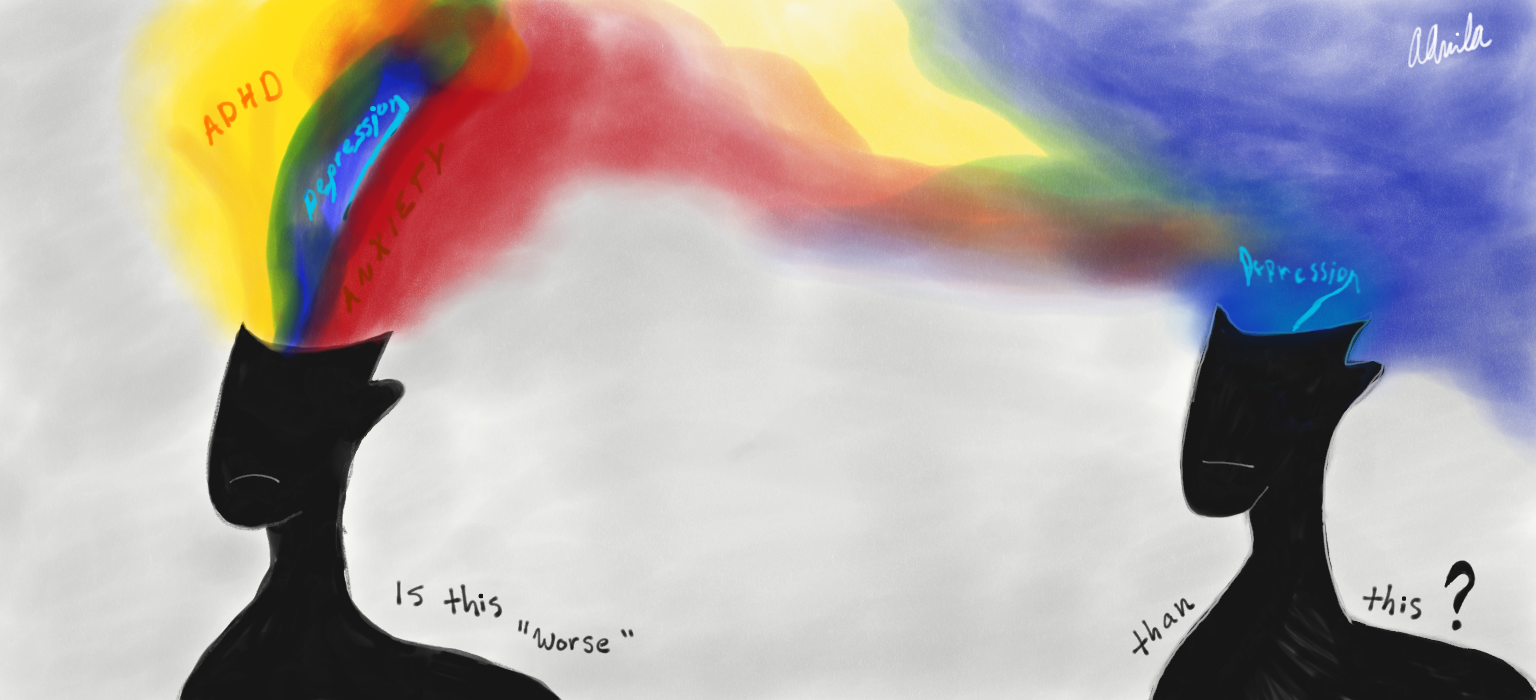I always thought I was content with speaking about my mental health struggles. It wasn’t something I felt ashamed about, rather it was liberating to let people know of my own struggles – it indirectly assured me that people could gain a better understanding of me, that my "quirks and traits" did in fact, come from somewhere.
...And then eventually my openness to discussing my mental health became something of a laundry list of “problems” in the other person’s eyes.
I have ____, ____, _____, the list feels endless. I don’t blame them – various mental health disorders are already largely complex individually; it can be mind boggling to me at times that the brain can handle so many challenges.
But it’s also not uncommon. Anxiety disorders are the most prevalent diagnoses for people with bipolar disorder.[1] Studies show Obsessive Compulsive Disorder and Attention Deficit Disorder to be highly comorbid[2][3] with each other, meaning that both conditions occur in the brain at once. The main point here is that having multiple diagnosed mental disorders, or symptoms of more than one mental health condition is more common than one may think; how they interact with brain functions can make someone more susceptible to multiple mental health challenges. For example, ADHD and OCD both affect the brain’s prefrontal cortex from carrying out its functions effectively to process information and adhere to attention-based tasks (just to name a few of its roles). In simple terms, some mental disorders can go together given the nature of their tendencies.
When I opened up to people about my diagnosed conditions in the past, to me, it made sense why I have more than one. But to someone who is not aware of how the brain responds to a chemical imbalance – which can contribute to a number of symptoms of different mental disorders as I’ve implied, they can see someone like me as having a lot of baggage. My conditions have been downplayed to a laundry list of unnecessary work.
While it’s not a necessity to talk about my mental health to anyone, I also don’t think it’s healthy to feel the need to oversimplify my struggles to protect any bewildered responses.
As part of Mental Health Awareness Month, stigma over having multiple mental disorders is something I wanted to bring attention to. Yes, having an anxiety disorder and mild depression and ADHD would be very challenging to deal with. But it becomes an ill-reason to discount a person’s character, to assume they have too many problems, that it measures how stable or unstable a person is. It’s one thing to have an initial reaction but another to walk away after hearing names of mental disorders that may have not been well-understood in the first place.
If you think you may have a mental health condition or are experiencing symptoms of one, Health and Wellness at the University of Toronto is available for support. To enquire about their services please call 416-978-8030 between 8:45 a.m. to 5 pm. Eastern time from Mondays-Thursdays or email info.hwc@utoronto.ca. Otherwise contact your local healthcare provider for support.
[1] Ott, Carol A. “Treatment of anxiety disorders in patients with comorbid bipolar disorder.” The mental health clinician vol. 8,6 256-263. 1 Nov. 2018, doi:10.9740/mhc.2018.11.256
[2] Blanco‐Vieira, Thiago, et al. “The Impact of Attention Deficit Hyperactivity Disorder in Obsessive‐Compulsive Disorder Subjects.” Depression and Anxiety, vol. 36, no. 6, 2019, pp. 533–542., doi:10.1002/da.22898.
[3] Brem, S., Grünblatt, E., Drechsler, R. et al. The neurobiological link between OCD and ADHD. ADHD Atten Def Hyp Disord 6, 175–202 (2014). https://doi.org/10.1007/s12402-014-0146-x

This is so relatable this is taking what some people think and making it visual. I sometimes feel overwhelmed ect.